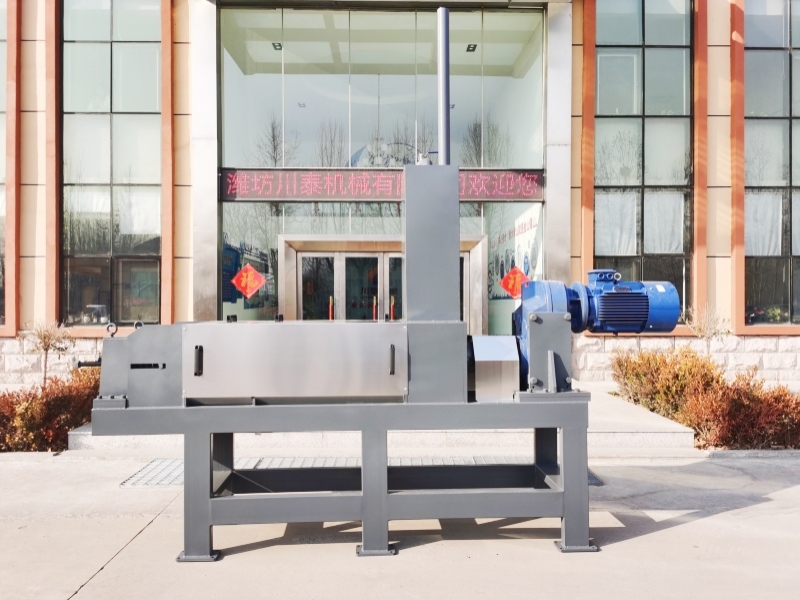
Cow dung dehydrator
Livestock farming plays a pivotal role in global food production and the generation of organic waste. One of the major waste byproducts of livestock farming is cow manure, which presents both challenges and opportunities for proper management. This article explores the utilization of cow manure as a resource by employing a pressing apparatus for dehydration purposes on farms.
Cow Manure Dehydration and Pressing Apparatus:
The process of dehydrating cow manure involves the removal of excess moisture content, reducing its volume, and enhancing its potential for various applications, including as a fertilizer or even for biogas production. A pressing apparatus, commonly referred to as a "manure press" or "manure dewatering machine," is a mechanical device designed to facilitate this process. It operates by exerting pressure on the cow manure, expelling water, and yielding a drier product.
Operating Principle:
The pressing apparatus consists of a sturdy frame, a feeding mechanism, a compression chamber, and a collection system. Cow manure is introduced into the machine through the feeding mechanism, which can be a conveyor belt or a hopper. Inside the compression chamber, a mechanical press exerts force on the manure, squeezing out water through fine mesh screens or perforated plates. The collected liquid, often referred to as "digestate," can be processed further for nutrient recovery or treatment, while the dewatered manure exits the press for subsequent utilization.
Advantages of Cow Manure Dehydration:
1.Volume Reduction: The dehydration process significantly reduces the volume of cow manure, making it easier to handle, store, and transport.
2.Nutrient Concentration: The dewatered manure retains a higher concentration of nutrients like nitrogen, phosphorus, and potassium, which are essential for plant growth.
3.Odor Mitigation: The reduction in moisture content helps mitigate foul odors associated with raw manure, contributing to a more favorable farm environment.
4.Fertilizer Quality: The dewatered manure can be used as a high-quality fertilizer, improving soil structure and nutrient content.
5.Biogas Production: Dewatered cow manure can serve as a more efficient feedstock for anaerobic digestion, enhancing biogas production for renewable energy generation.
Applications of Dewatered Cow Manure:
1.Agricultural Fertilizer: The dewatered manure can be spread on fields as a nutrient-rich organic fertilizer, reducing the need for synthetic fertilizers.
2.Soil Amendment: It improves soil structure, water retention, and microbial activity, enhancing overall soil health and productivity.
3.Biogas Generation: Dewatered manure is an excellent substrate for biogas production through anaerobic digestion, contributing to renewable energy production and waste management.
4.Compost Feedstock: Dewatered cow manure can be used as a component in composting, enriching the compost with essential nutrients.
Conclusion:
The pressing apparatus for cow manure dehydration presents an innovative solution for managing organic waste from livestock farms. By reducing moisture content and enhancing its utility, this process transforms cow manure into a valuable resource with multiple applications, spanning from agricultural fertilization to renewable energy production. Embracing such technology not only addresses waste management challenges but also contributes to sustainable agricultural practices.




If your company wants to establish a business relationship with us, please briefly describe the cooperation intention and send an email to:chuantaiscrewpress@gmail.com























































































![[list:title]](/static/upload/image/20240528/1716877114510915.jpg)